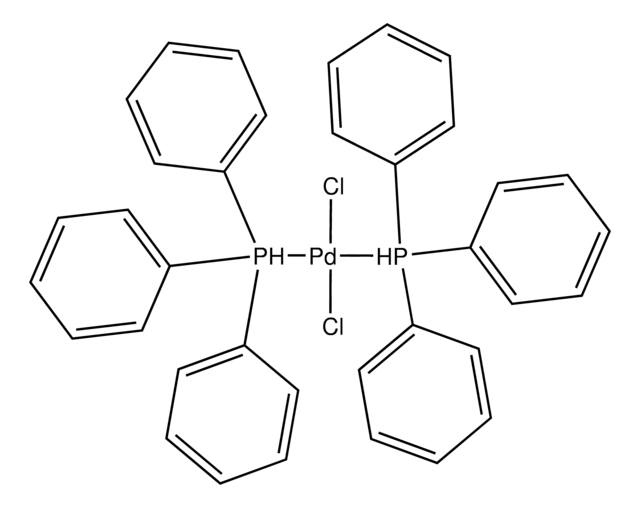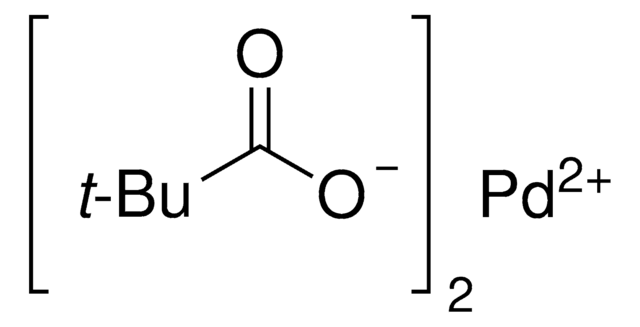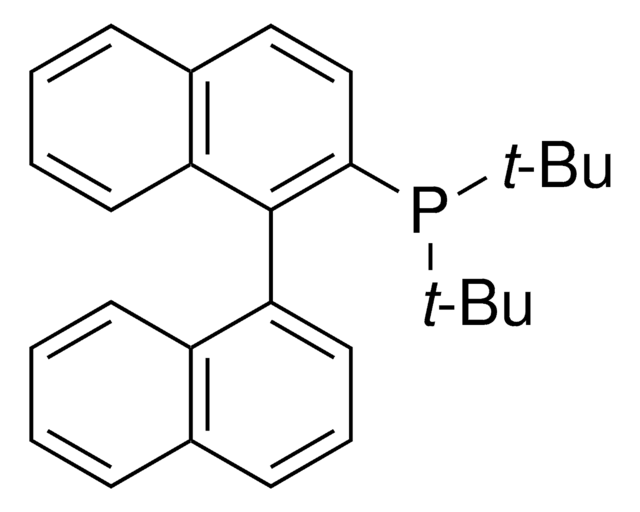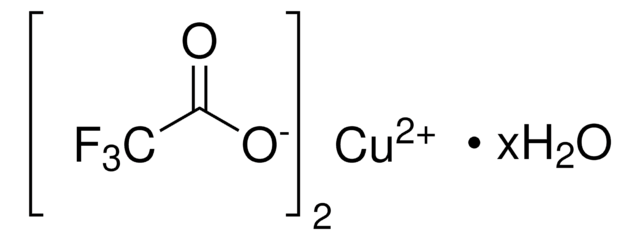299685
Palladium(II) trifluoroacetate
97%
Synonym(s):
Pd(TFA)2, Trifluoroacetic acid palladium(II) salt
About This Item
Recommended Products
assay
97%
form
solid
reaction suitability
core: palladium
reaction type: Buchwald-Hartwig Cross Coupling Reaction
reaction type: Cross Couplings
reaction type: Heck Reaction
reaction type: Hiyama Coupling
reaction type: Negishi Coupling
reaction type: Sonogashira Coupling
reaction type: Stille Coupling
reaction type: Suzuki-Miyaura Coupling
reagent type: catalyst
reaction type: C-H Activation
mp
~220 °C
SMILES string
FC(F)(F)C(=O)O[Pd]OC(=O)C(F)(F)F
InChI
1S/2C2HF3O2.Pd/c2*3-2(4,5)1(6)7;/h2*(H,6,7);/q;;+2/p-2
InChI key
PBDBXAQKXCXZCJ-UHFFFAOYSA-L
Looking for similar products? Visit Product Comparison Guide
General description
signalword
Warning
hcodes
Hazard Classifications
Eye Irrit. 2 - Skin Irrit. 2 - STOT SE 3
target_organs
Respiratory system
Storage Class
11 - Combustible Solids
wgk_germany
WGK 3
flash_point_f
Not applicable
flash_point_c
Not applicable
ppe
dust mask type N95 (US), Eyeshields, Gloves
Choose from one of the most recent versions:
Already Own This Product?
Find documentation for the products that you have recently purchased in the Document Library.
Customers Also Viewed
Our team of scientists has experience in all areas of research including Life Science, Material Science, Chemical Synthesis, Chromatography, Analytical and many others.
Contact Technical Service













![[Pd(allyl)Cl]2 Umicore](/deepweb/assets/sigmaaldrich/product/structures/367/851/7e957f32-7c31-40bf-8349-77de7cc990e4/640/7e957f32-7c31-40bf-8349-77de7cc990e4.png)